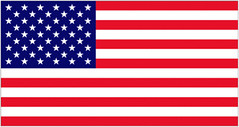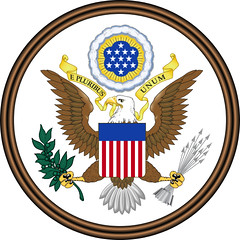![]()
Today in 1810, Mexico gained their Independence from Spain.
Mexico

Mexico Breweries
- Backstreet Restaurant and Brewing
- Baja Brewing Company
- Beer Factory: Cuicuilco, Lindavista, Puebla, Santa Fé, Satélite, Tlanepantla
- Beer Lounge Craft Brewed Ales
- Calavera
- Cervecería Cuauhtémoc-Moctezuma
- Cerveceria de Baja California
- Cervecería del Pacífico
- Cervecería Estrella de Guadalajara
- Cerveceria Jack
- Cervecería Minerva SA de CV
- Cervecería Modelo
- Cervecería Primus
- Consorcio Cervecero de Baja California
- FEMSA: Cervecería Cuauhtémoc-Moctezuma
- Compañía Cervecera del Trópico
- La Graciela: Taller de Cerveza
- Sierra Madre Brewing
Mexico Brewery Guides
- Beer Advocate
- Beer Me: Baja California; Baja California Sur; Coahuila de Zaragoza; Distrito Federal; Estado de México; Jalisco; Nayarit; Nuevo León; Oaxaca; Puebla; Sinaloa; Sonora; Veracruz-Llave; Yucatán; Zacatecas
- Rate Beer
Other Guides
- CIA World Factbook
- Official Website
- U.S. Embassy
- Wikipedia
- Wikipedia’s Beer in Mexico
Guild: Asociacion Nacional De Cervez Mexico; Beer Manufacturers Association
National Regulatory Agency: Ministry of Health (Secretaria De Salud)
Beverage Alcohol Labeling Requirements: Labels must include the following information: Name or commercial trademark of the product; Name and address of importer; Net contents (in metric units); Country of origin; Alcohol content by percentage of total volume; Date marking, if applicable; Special instructions for use, storage, or handling, if necessary
Drunk Driving Laws: BAC 0.08% Note: Foreigners with recent (in the past 10 years) drunk-driving criminal convictions are generally refused entry at the border. Mexico’s Immigration Act section 36 considers any foreign drinking and driving outstanding charge or conviction as an Indictable offense (similar to a felony).

- Full Name: United Mexican States
- Location: North America, bordering the Caribbean Sea and the Gulf of Mexico, between Belize and the United States and bordering the North Pacific Ocean, between Guatemala and the United States
- Government Type: Federal Republic
- Language: Spanish only 92.7%, Spanish and indigenous languages 5.7%, indigenous only 0.8%, unspecified 0.8% [Note: indigenous languages include various Mayan, Nahuatl, and other regional languages]
- Religion(s): Roman Catholic 76.5%, Protestant 5.2% (Pentecostal 1.4%, other 3.8%), Jehovah’s Witnesses 1.1%, other 0.3%, unspecified 13.8%, none 3.1%
- Capital: Mexico City
- Population: 114,975,406; 11th
- Area: 1,964,375 sq km, 14th
- Comparative Area: Slightly less than three times the size of Texas
- National Food: Mole poblano; Tacos
- National Symbols: Golden Eagle; Dahlia; Ahuehuete (Taxodium mucronatum); Our Lady of Guadalupe, Castillo de Chapultepec, Teotihuacan, el Zocalo, sombrero, chocolate, mariachis; Eagle, snake and cactus
- Affiliations: UN, OAS
- Independence: From France and the UK, January 1, 1960

- Alcohol Legal: Yes
- Minimum Drinking Age: 18
- BAC: 0.08%
- Number of Breweries: 34

- How to Say “Beer”: cerveza
- How to Order a Beer: Una cerveza, por favor
- How to Say “Cheers”: Salud
- Toasting Etiquette: N/A

Alcohol Consumption By Type:
- Beer: 78%
- Wine: <1%
- Spirits: 21%
- Other: 1%
Alcohol Consumption Per Capita (in litres):
- Recorded: 5.02
- Unrecorded: 3.40
- Total: 8.42
- Beer: 3.96
WHO Alcohol Data:
- Per Capita Consumption: 5 litres
- Alcohol Consumption Trend: Stable
- Excise Taxes: Yes
- Minimum Age: 18
- Sales Restrictions: Time, places, specific events, petrol stations
- Advertising Restrictions: Yes
- Sponsorship/Promotional Restrictions: Yes
Patterns of Drinking Score: 4
Prohibition: Zapatista Communities will often ban alcohol as part of a collective decision. This has been used by many villages as a way to decrease domestic violence and has generally been favored by women. However, this is not recognized by federal Mexican law as the Zapatista movement is strongly opposed by the federal government.
The sale and purchase of alcohol is prohibited on and the night before certain national holidays, such as Natalicio de Benito Juárez (birthdate of Benito Juárez) and Día de la Revolución, which are meant to be dry nationally. The same “dry law” applies to the days before presidential elections every six years.


































